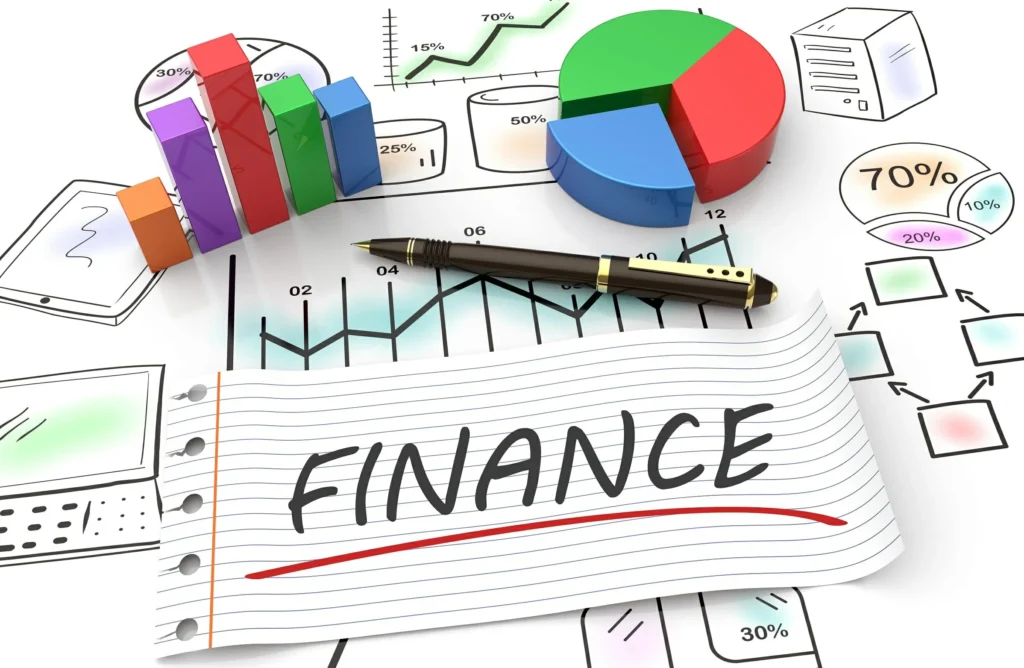Yet, many people still avoid or misunderstand it, often equating money management with stress, complexity, or even boredom. The truth is, managing your money wisely gives you power — the power to make choices, to handle emergencies, and to live a life with fewer financial worries.

Why Financial Literacy Matters
Money is a tool. When used wisely, it opens doors and creates opportunities. When mismanaged, it becomes a source of stress, missed chances, and long-term consequences. Financial literacy isn’t about being rich — it’s about making informed decisions. It means knowing how to budget, save, invest, and plan for the future, no matter your income level.
Being financially literate allows you to avoid high-interest debt, build wealth slowly over time, and reach your life goals more efficiently. Whether it’s traveling the world, starting your own business, buying a home, or retiring early, money plays a key role.
The Importance of Budgeting
A budget is your financial blueprint. It tells you how much money is coming in, how much is going out, and where that money is going. Budgeting doesn’t mean cutting out every luxury or fun purchase — it means making intentional choices with your money.

There are several popular budgeting methods. The 50/30/20 rule is a beginner-friendly approach, dividing your income into 50% for needs, 30% for wants, and 20% for savings or debt repayment. Zero-based budgeting, which assigns every dollar a specific purpose, is ideal for people who want maximum control over their finances.
When you stick to a budget, you’re not just managing money — you’re managing your future. You’ll know exactly where your money goes and how much is available for your goals.
Building an Emergency Fund
An emergency fund is like financial armor. It protects you from unexpected expenses, such as medical emergencies, job loss, or car repairs, without derailing your entire budget.
Experts recommend saving at least three to six months’ worth of living expenses in a high-yield savings account. For beginners, even $500 to $1,000 can provide a useful cushion.

Having emergency savings means you don’t have to rely on credit cards or loans in a crisis. It also gives you peace of mind, knowing you’re financially prepared for the unexpected.
The Smart Way to Handle Debt
Not all debt is created equal. There’s a big difference between borrowing money to invest in your education or a home, versus racking up high-interest credit card bills for things you can’t afford.
Managing debt begins with understanding how interest works. The higher the interest rate, the more you’ll pay over time. Credit card debt, payday loans, and certain types of personal loans can quickly spiral out of control if not handled properly.
There are two popular strategies for paying down debt. The debt snowball method involves paying off the smallest debt first to build momentum. The debt avalanche method targets the highest-interest debt first, saving you money in the long run.
Being debt-free isn’t just about numbers — it’s about freedom. Eliminating debt reduces financial stress and opens up more opportunities for saving and investing.
The Power of Saving Consistently

Saving money isn’t just about putting aside what’s left over at the end of the month — it’s about making saving a priority. Automating your savings through direct deposits or automatic transfers makes the process seamless.
You should have separate savings for different goals. An emergency fund is one. Short-term savings could be for vacations, gifts, or a car. Long-term savings might include a home down payment or retirement.
Saving even small amounts regularly builds strong habits and shows that consistency is more powerful than large, occasional deposits.
Introduction to Investing
Saving protects your money. Investing grows it. And if you want to build wealth, investing is essential.

Investing means putting your money into assets — like stocks, bonds, mutual funds, or real estate — that have the potential to increase in value over time. Unlike savings, which earn minimal interest, investments can yield much higher returns, especially when allowed to grow over long periods.
The magic ingredient in investing is compound interest. This means earning interest on your interest. The earlier you start, the more powerful compounding becomes.
For beginners, low-cost index funds or ETFs (exchange-traded funds) are a great place to start. They offer diversification and lower risk than individual stocks.

It’s also crucial to assess your risk tolerance. If market ups and downs keep you awake at night, you may want to stick with more conservative investment options.
Credit Scores and Why They Matter
Your credit score is a three-digit number that plays a big role in your financial life. It affects your ability to get loans, credit cards, apartments, and sometimes even jobs. The higher your score, the more trustworthy you appear to lenders.
Your credit score is based on several factors: payment history, credit utilization (how much of your available credit you’re using), length of credit history, types of credit, and recent credit inquiries.
Improving your credit score involves paying bills on time, keeping credit balances low, and not opening too many new accounts at once. A strong credit score can save you thousands of dollars in interest over your lifetime.
Planning for Retirement
Even if retirement feels far away, the best time to start planning for it is now. The sooner you start saving, the more you can take advantage of compound growth.
Common retirement accounts include 401(k)s (offered by employers) and IRAs (Individual Retirement Accounts). Many employers will match a portion of your 401(k) contributions — essentially giving you free money.
Try to contribute consistently, even if it’s a small amount. If you can increase your contributions each year as your income grows, you’ll be on the path to financial security in your golden years.
Retirement isn’t just about money — it’s about having the freedom to choose how you spend your later years. Whether you want to travel, volunteer, or relax with family, smart planning today will make those dreams possible.
Living Below Your Means
One of the simplest yet most powerful financial principles is living below your means. It doesn’t mean living like a monk or never enjoying your money — it means spending less than you earn so you can save, invest, and prepare for the future.

People who live below their means avoid lifestyle inflation — the tendency to increase spending as income increases. Instead, they focus on building wealth over time, staying financially flexible, and prioritizing what truly matters.
This approach builds long-term financial stability and gives you options. It puts you in control of your money, not the other way around.
Setting Financial Goals
Just like any area of life, your finances benefit from having clear goals. Whether it’s paying off a student loan, saving for a wedding, or building a business, specific financial goals keep you motivated and focused.
Make your goals SMART: Specific, Measurable, Achievable, Relevant, and Time-bound. Instead of saying “I want to save money,” aim for “I want to save $5,000 for a down payment within 12 months.”
Track your progress, adjust as needed, and celebrate milestones. Financial success isn’t always fast — it’s built over time with dedication and clarity.
Conclusion
Personal finance is not about being perfect or having all the answers. It’s about being proactive, informed, and willing to learn. With every small step — whether it’s creating a budget, saving $100, or paying off a credit card — you’re building a stronger financial future.

Mastering your finances won’t just improve your bank account. It will reduce stress, increase your freedom, and give you the confidence to pursue your dreams, knowing your money is working for you.
Whether you’re just starting out or reevaluating your current habits, remember: financial freedom is possible for everyone — including you.